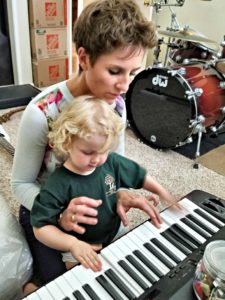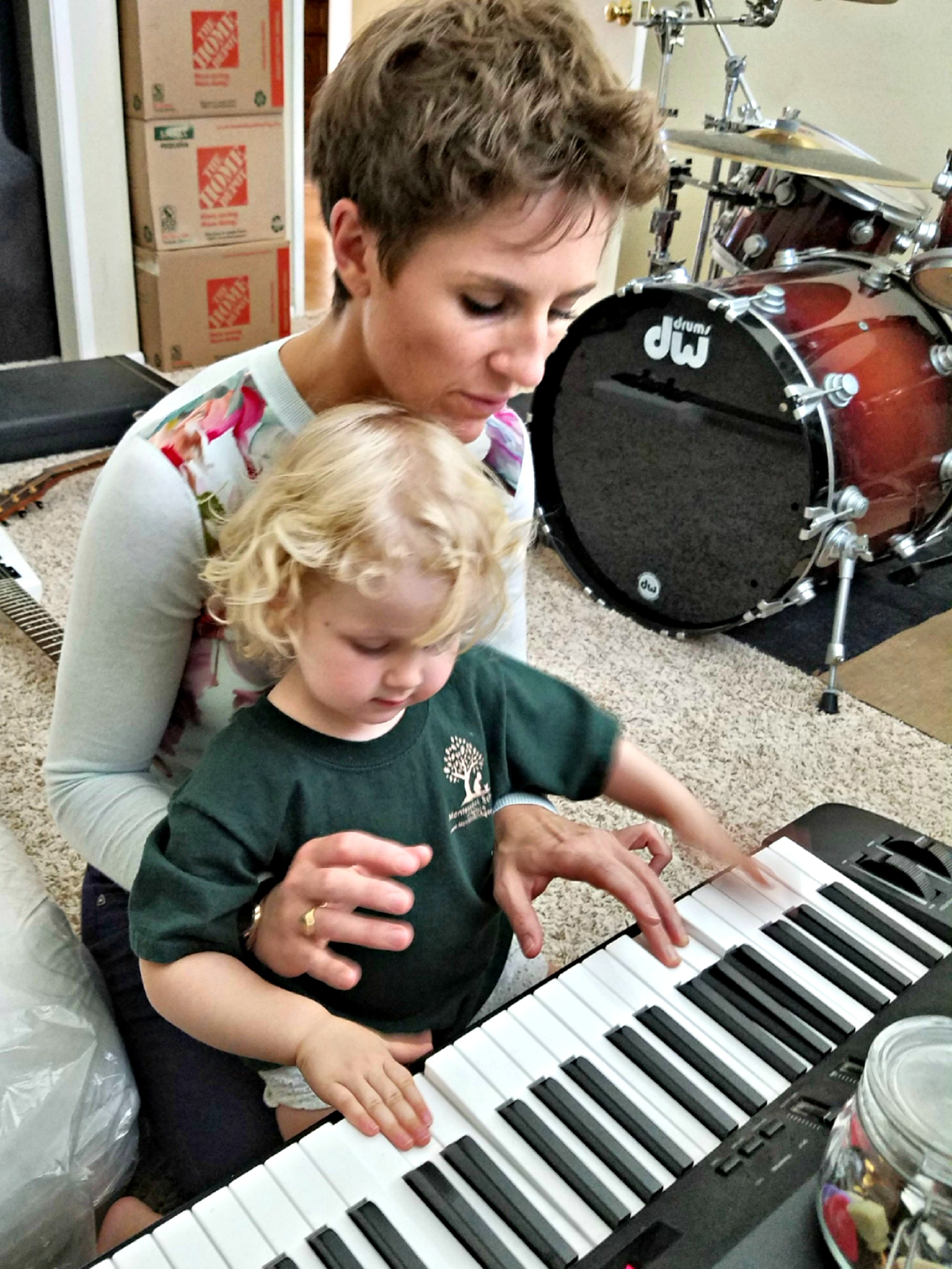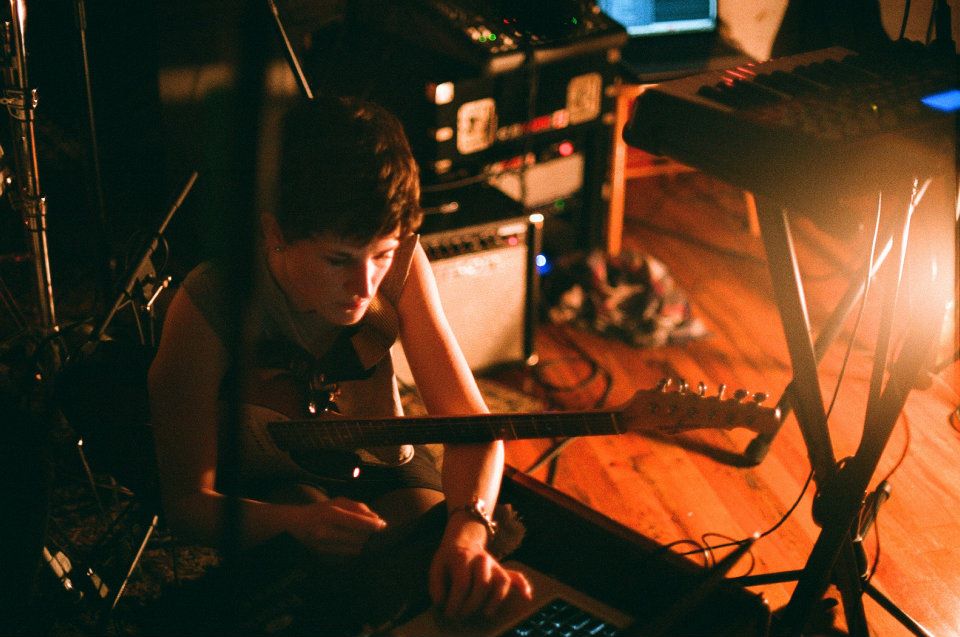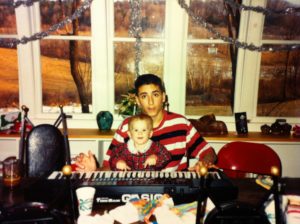 Katy Templeman-Holmes is the Director of Marketing for Professional, at HARMAN. She started out in recording and broadcast engineering before moving over to the business side where she has worked for Euphonix in Technical Sales, then to SSL for Business Development, and finally to HARMAN. At Harman, she has held several roles including; as a Product Manager based in Switzerland, running US Sales for Recording & Broadcast, training FOH & monitor engineers taking consoles on tour, running product development for a handful of different industries, and Director of Solutions and Marketing for Hospitality and Broadcast.
Katy Templeman-Holmes is the Director of Marketing for Professional, at HARMAN. She started out in recording and broadcast engineering before moving over to the business side where she has worked for Euphonix in Technical Sales, then to SSL for Business Development, and finally to HARMAN. At Harman, she has held several roles including; as a Product Manager based in Switzerland, running US Sales for Recording & Broadcast, training FOH & monitor engineers taking consoles on tour, running product development for a handful of different industries, and Director of Solutions and Marketing for Hospitality and Broadcast.
The apple doesn’t fall far from the tree, Katy’s father owned and work in studios as a producer/engineer before moving to work with pro-audio manufacturers including Neve, Trident, and Harman. She grew up visiting her father in studios, console factories and collecting all the ‘stuff’ he brought back from audio trade shows. She would spend her youth building models and taking things apart and developed an interest in electronics.
Katy went on to attend Chelsea School of Fine Art in London where Katy learned that she needed to follow her passion “Learning How Stuff Works.” So she headed to the University of England University of Surrey and obtained a Bachelors of Science in Media Technology & Broadcast Engineering. While attending she worked as on-air talent at some local UK radio stations and the weekends engineering for IMG. She also split the year between school and working in Nashville (her family has relocated to Nashville for her father’s job at Harman) as a record promoter for an independent label.
After graduation, Katy would move to Los Angeles and work in production and recording. She had an apprenticeship for two years at Elephant Symphony studios in Burbank and moonlighted with a day job at Clear Channel/Fox. This is where Katy would learn to understand audio as a discipline. From working with jazz musicians or on animatics she gained enough experience to learn that once again she was not following her passion.
Since technology is always changing and evolving Katy felt that she would be better suited to the manufacturing side of audio. Working at Harman, she has found roles that continually challenge and inspire her. Katy is also a single mom to her daughter Goldie. At Harman, she has been able to find and manage a work-life balance that works for her.
At Harman what are you responsible for?
In a nutshell, with my team, I am responsible for delivering a strategic marketing plan and executing it, for all the markets that fall under headlines of live performance, hospitality, large venues, retail, corporate, education, and government. For these industries, we manufacture audio, video, lighting, and control solutions. My role is to drive revenue by making sure everyone knows this!
Do you lead teams or work as a team?
Teams always need a leader, but leading and dictating are very different. We definitely work as a team, and I am the first and last port-of-call for decisions and accountability. As a team, we collaborate, and as a leader, I digest all the information we have and analyze it for a result. Typically, we are working through taking calculated risks.
If you are a team leader have you found it challenging as a woman? Recently on SoundGirls, we have been having discussions about double standards for women. Those women who are perceived as “nice and friendly” are passive and not taken seriously yet when they are assertive and leaders they are perceived as “Ice Queens”. If you have encountered situations like this how do you manage it or overcome it?

NAB China 2016
I know a huge contributor to my personal and professional success has been confidence; I know exactly who I am, and who I am not. I am strong, but I do not dictate. I am compassionate and considerate, but I am not soft. I am smart, but I am not smarter. I am a woman, but I am so many other things, and so much more. How you see yourself and how you present yourself to others can be the strongest power you have. At work and home, we all need to show diligence to the end, so that our hope is sure; it just takes focus and genuine self-respect.
I feel it is also important to remember standards and expectations are not limited to women or the audio industry. It is important to look at the topic with balance; I cannot count the number of times male co-workers have commented on how much they appreciate and enjoy having a women in the group/team/meeting etc. It’s all about balance!
Do you find Harman to be a diversified company?
HARMAN is very diverse, and it has an enormous global footprint, spanning many cultures, societies, and minorities. I have so far enjoyed a very liberating eight years with the company. I cannot think of one example where I have thought about the fact I am a woman or any other profile at work. I am just Katy.
What are a few recent projects that you have worked on and/or are proud of?
If you can get relationships right as a leader, peer, subordinate, and individual, I think you can pop out the other side of any project with a sense of pride; done right, most other things fall into place. So for me, everything that is brainstormed, developed, and executed, is a result of the team, and for me, I get the most pride from seeing my team succeed.

Tech Conference 2015
You mention passion. How important do you think having a passion for what you do is? I think it is fairly important and if you don’t have it on the engineering side, you are not going to go very far. I think passion is more important than say having golden ears. Without passion, you cannot “create magic”. Thoughts?
I absolutely agree! Passion is imperative for longevity. Discovering my passions has probably been the most liberating episodes of my life, and in turn, dictated the best chapters of it! Professionally I still don’t have a direct goal, a definitive “I want to be…” statement. Recognizing my strengths and balancing them with my interests [and discovering my interests] has been a journey for as long as I can remember. I thought I would be an illustrator – I am great at drawing, but I don’t care for it. I thought I would be a recording engineer or producer, like my Dad, but turns out I hate staying up all night, and I don’t care for dramatic people at 3 am! It’s taken me a solid 15-20 years to figure out what I really like is understanding how things work – that’s my passion. I love understanding the psychology of people, the physics of audio, how on earth you put together Ikea furniture, how a business needs to change to be able to grow by 8%, upon request. I’m grateful for having such a broad passion and interest, and finally understanding that in of itself!
I am also a mom to 21-year-old twin daughters that spent K-8th in Montessori, and the one thing I loved the most is that it encouraged them to find their passion and to be lifelong learners. Thoughts?
I’ll preface my response by stating I try not to preach my intense passion for Montessori because I do respect and believe in an ‘each to their own philosophy. That said ☺, I struggle to understand why it is not the only way we educate our children! Montessori is proven to nurture self-awareness, independence and, confidence – that will pay a person back a thousand times over in life. I hope my choice of Montessori for my daughter will help her find herself and her confidence as early in life as possible, and embrace her passions in any way she chooses. My goal for her is not to be anything or anyone, but to be happy and with total ownership of her life. I truly believe Montessori education and Montessori-inspired parenting, is a good foundation for all of that.
How did your time in the recording studio and broadcast help you with your current position?
Everything I have done has helped me, but the hours in the studio were the best. I learn by experience much more than I do by books or formal education. I more or less did an apprenticeship with a program called Recording Connection. I had a formal curriculum I had to learn, but it was taught to me by the studio owner – in turn, I worked for him for free, and within that, I got another lesson! I was fortunate; my mentor was passionate and considerate. He shared a lot with me, and I learned a huge amount during my time with him. Whilst I do not directly utilize that audio knowledge now, having that knowledge gave me a huge boost in professional and personal confidence, and that keeps paying me back to this day. Everything I learned also supported my success early on where the knowledge and understanding trumped any preconceived notion of a ‘young woman walking into a studio trying to sell an audio console.’ I knew my stuff, and I led with that. The respect followed.
Finally – How do you juggle your job with motherhood?
 I can say I definitely don’t juggle. I found that juggling meant I didn’t do anything 100% and I always felt guilty. I am a single mother, and I don’t have a local family to help out. That forced my hand to really think about how I am going to raise a healthy happy child, and keep me healthy and happy beyond motherhood. I have found a groove that works well for my current circumstances. My role at work is global, so I work very early in the morning for a few hours before my daughter wakes. Then I am in mom-mode for a few hours, until I take her to Montessori. I then go to the office, transition from Europe and Asia projects, over to more US-centric and administrative items, before leaving to pick up my daughter mid-afternoon. The rest of the day I am back in mom-mode! I also choose to spend my money on ‘wingmen’ – by this I mean a housekeeper, a gardener, Amazon Pantry, Uber Eats….you get the picture! I need help far more than I need to go to the mall, so I channel a little extra cash in that direction, and it goes a long way in helping me balance a career with motherhood, and truly enjoy it all.
I can say I definitely don’t juggle. I found that juggling meant I didn’t do anything 100% and I always felt guilty. I am a single mother, and I don’t have a local family to help out. That forced my hand to really think about how I am going to raise a healthy happy child, and keep me healthy and happy beyond motherhood. I have found a groove that works well for my current circumstances. My role at work is global, so I work very early in the morning for a few hours before my daughter wakes. Then I am in mom-mode for a few hours, until I take her to Montessori. I then go to the office, transition from Europe and Asia projects, over to more US-centric and administrative items, before leaving to pick up my daughter mid-afternoon. The rest of the day I am back in mom-mode! I also choose to spend my money on ‘wingmen’ – by this I mean a housekeeper, a gardener, Amazon Pantry, Uber Eats….you get the picture! I need help far more than I need to go to the mall, so I channel a little extra cash in that direction, and it goes a long way in helping me balance a career with motherhood, and truly enjoy it all.
















